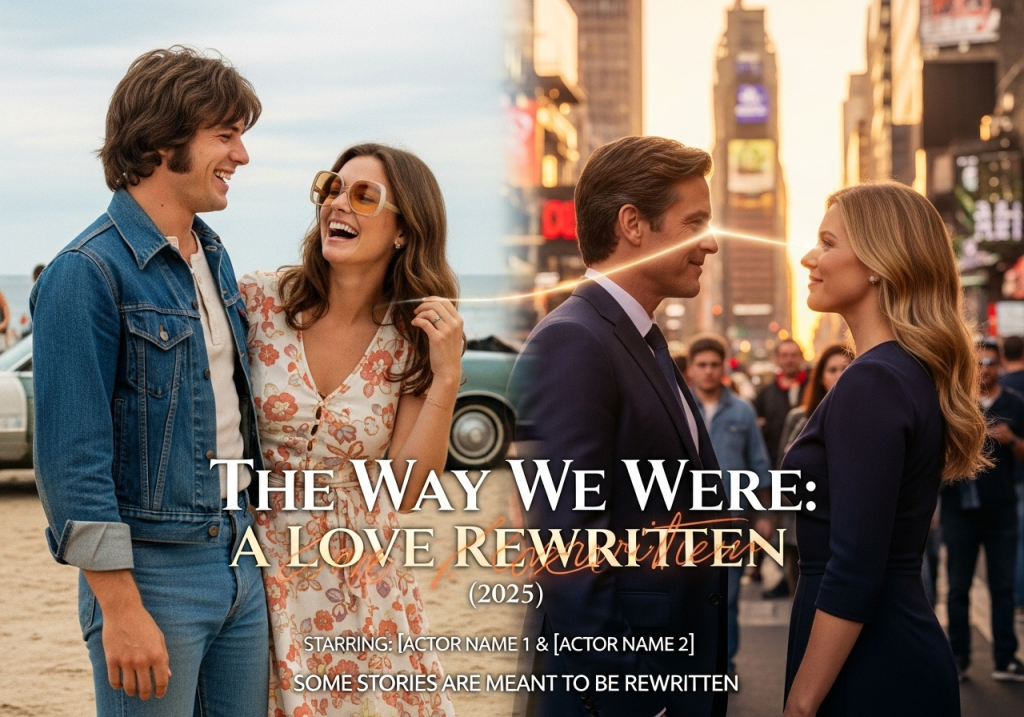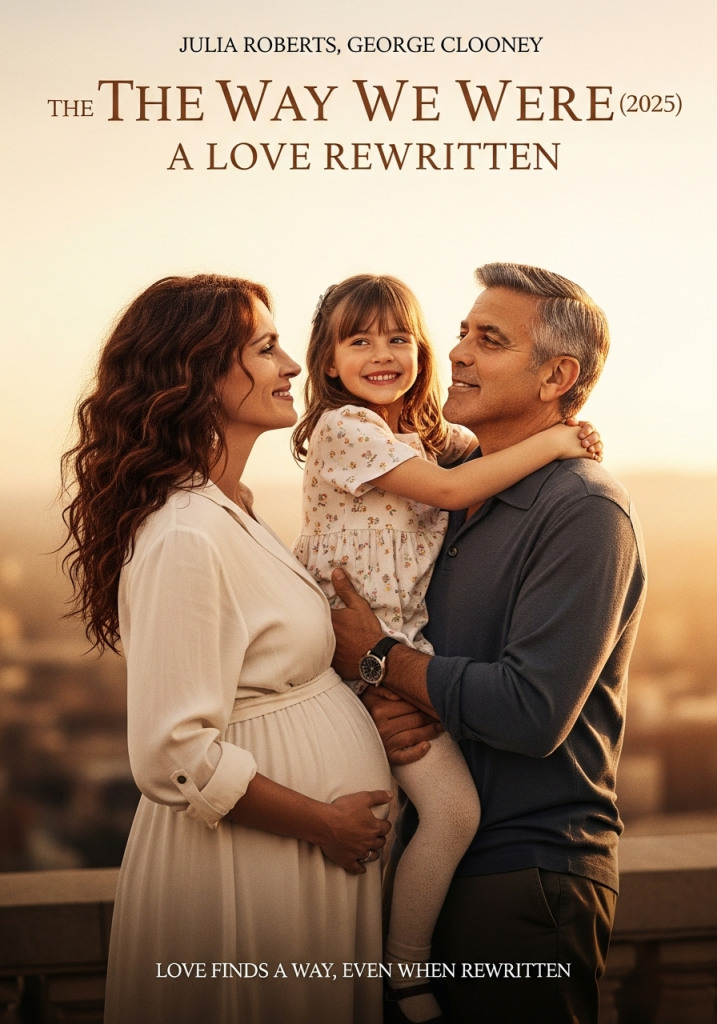The Way We Were: A Love Rewritten (2025) reimagines the classic love story for a new generation, blending nostalgia with a contemporary lens. Set against the backdrop of political unrest and social change, the film follows Katie Morosky, a passionate activist and journalist, and Hubbell Gardiner, a charismatic yet conflicted screenwriter, as their paths cross once more decades after their emotional split.
The story begins when Katie and Hubbell unexpectedly reunite at a university event where she’s speaking and he’s being honored. The encounter rekindles buried emotions and unresolved questions. Though both have moved on with their lives—Katie with her advocacy work and Hubbell with a quiet, semi-retired life—they’re pulled back into the gravitational field of their once-intense connection.

Through a series of flashbacks and present-day reflections, the film explores how their differing worldviews once clashed and how time has shaped their values. Katie still burns with idealism, while Hubbell grapples with the compromises he made in pursuit of comfort and stability. Despite their divergent paths, the emotional undercurrent between them remains undeniable.
As they spend more time together—initially under the guise of collaboration on a memoir project—they begin to unpack the pain of their past, the choices that led to their separation, and the possibility of finding common ground again. Their conversations are layered with regret, affection, and a tentative hope that maybe, this time, love could endure.
Just when it seems they might rewrite their history, life intervenes once more. The film avoids easy resolutions, instead embracing the complexity of love that doesn’t always conquer all. But in doing so, it offers something more honest: a portrait of two people learning to see each other clearly, perhaps for the first time.

The Way We Were: A Love Rewritten is a poignant, beautifully acted drama that pays homage to the original while standing on its own. It explores the enduring pull of first love, the pain of political and personal divides, and the bittersweet possibility of second chances—not as fantasy, but as something earned through growth and truth.
